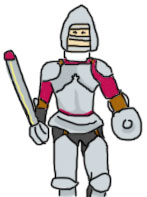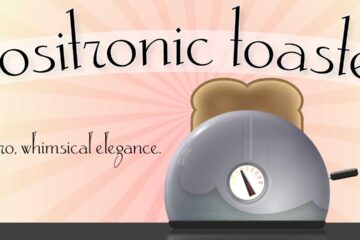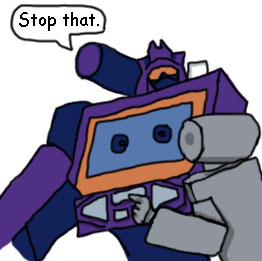At Clarion, one of our instructors (I think it was a guest lecture from Kim Stanley Robinson) said, “The change to your writing won’t come right away. For most it’s two years after Clarion that what you learn here will really change your writing.”
The message was, “Don’t expect to get famous on a schedule.”
But what I heard was, “You don’t know what you’re doing, kid. You’ll know what you’re doing in two years.”
I was incensed. Two whole years? I knew how to write! I was good at it! I just needed to polish my craft, maybe. Stop being so lazy. Really work at it. I’d show him!
Then two years after Clarion hit. I had some initial success, I sold 3 stories in 2014, and then 2015… nothing. My rejection counter kept creeping upward. Story drafts came back to me with comments like “Was this supposed to be science fiction?”
And it hit me like a cold wet salami in the face. “I don’t know what I’m doing! Back when I thought I knew what I was doing I totally didn’t. HEY WAIT – I’m supposed to know what I’m doing by now! Kim Stanley Robinson lied to me!”
Then I started getting sick. I had to do a lot of editing and struggling with my craft in hospital beds. In 2015 and 2016 I sold a few more stories – including my first sale to Analog which, yes, caused me almost to rupture the stitches on my stomach when I whooped in delight. Like healing from my intestinal troubles, my struggles with writing were uneven and quiet and full of minor achievements and setbacks.
Well, now it’s 2017. I think I just hit that point I was supposed to hit in 2013, because I finally realize I did NOT know how to write in 2013, and I’m only just figuring out how to write now.
“But Marie!” you say, “You sold stories to Analog! How did you do that without knowing how to write?”
The first time I picked up a bow and arrow, I shot a perfect bullseye. I then went on to suck at archery for years. Beginners luck? Sort of. You can succeed without knowing how. It’s accidental and unreliable, but it happens. My first published stories were like this. They worked despite me, not because of me.
What changed? What did I learn?
It’s kind of like… I knew the surface of a story. I knew rules and tricks for compelling sentences. I got flustered on plot, but I could fake it. (No don’t ask me how to fake it – this is not a form of success I’d wish on you. Maybe my central idea was unique enough or my last line killer enough that the editors forgave my stumbling.)
I worked harder and harder and read all the books and articles and wrote lists of tips and tricks for myself. I revised and revised. I made spreadsheets and graphs and analyzed plots and structures.
I felt betrayed. Wasn’t I good at this? How had I turned out to be so dumb after all?
It was doing the write-a-thon again that saved me from a downward spiral of self-loathing. I had a tight deadline, and I wasn’t trying to write publishable stories. I gave myself permission to tell the stupid stories.
 It’s like one of my fighting instructors told me: you have to think and practice so you can stop thinking, so you can start thinking.
It’s like one of my fighting instructors told me: you have to think and practice so you can stop thinking, so you can start thinking.
You learn a stance and a sword swing. You think about that stance and that sword swing and you practice it and practice it and eventually, you can just DO it. Then you realize “Crap I gotta think about WHERE to stand and WHEN to do the swing.” And you feel a backslide for a while as you struggle to catch up on new things, and then you get to be back at the beginning, thinking and practicing about timing and range, until you got THAT down and can start thinking about, oh I don’t know – the guy with a sword trying to kill you first?
I had to learn to write good sentences so I could stop worrying about the sentence and start worrying about the paragraph. I had to learn good paragraphs so I could stop worrying about them and start worrying about scenes. Once I knew how to write good scenes, yeah that’s the point at which I was able to “fake it” and have limited success. That success blinded me to the fact that I wasn’t really writing stories yet. I had to stop looking at the scenes and start looking at the reader, at this person out there reacting to my words like sword-strikes… I had to get them to move, to buy the feint and take the shot.
It feels pretty good, when you realize you’ve learned something. My advice to anyone out there struggling as I do, the advice I’d give my younger self if I could: be patient, let yourself be new at this. Think so you can stop thinking so you can think again.


